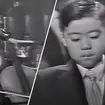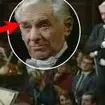Who was Felicia Montealegre, Chilean actress and Leonard Bernstein’s wife?
2 October 2023, 11:47 | Updated: 3 October 2023, 10:10
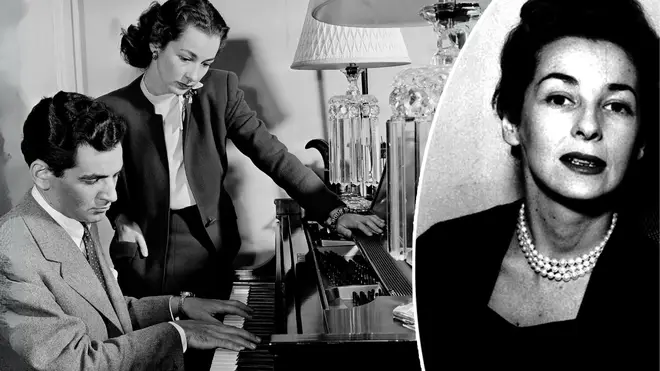
A Costa Rican-Chilean actress in television and Broadway, Felicia Montealegre was legendary conductor-composer Leonard Bernstein’s wife. We dive deeper into the fascinating life of the actress famed for her activism and classical music connections.
Listen to this article
Felicia Montealegre was a Costa Rican-Chilean actress and social activist, and the wife of American conductor and composer Leonard Bernstein.
She was a powerful voice in political struggles that included working women’s rights, anti-war movements and the struggle for racial equality. And she was a successful and versatile actor, appearing in leading Broadway productions and TV shows, as well as on the world’s great concert and opera stages with the best conductors.
Bradley Cooper is directing and starring in the Netflix film, Maestro, a film depicting Leonard Bernstein’s relationship and marriage with Montealegre. But who was she and how did they meet?
We explore her fascinating life below.
Read more: Bernstein biopic ‘Maestro’ sparks 7-minute standing ovation at Venice premiere

Watch the teaser for Maestro
What was Felicia Montealegre best known for?
Felicia María Cohn Montealegre was born on 6 February 1922, in San José in Costa Rica. Her mother, Clemencia Cristina Montealegre Carazo, was Costa-Rican and her father, Roy Elwood Cohn, was an American mining executive, stationed in San José for work.
Montealegre’s father’s work took the family to Chile soon after she was born, and she grew up and was educated there.
She loved acting from a young age, pursuing it in Chile to begin with. She made her professional acting debut in Santiago before moving to New York in 1944 when she was in her early twenties.
She always dreamt of moving to America, and when she was 21 she went to the US embassy in Santiago to take an oath of allegiance to the country. Two years later, she emigrated to the United States and lived there for the rest of her life.
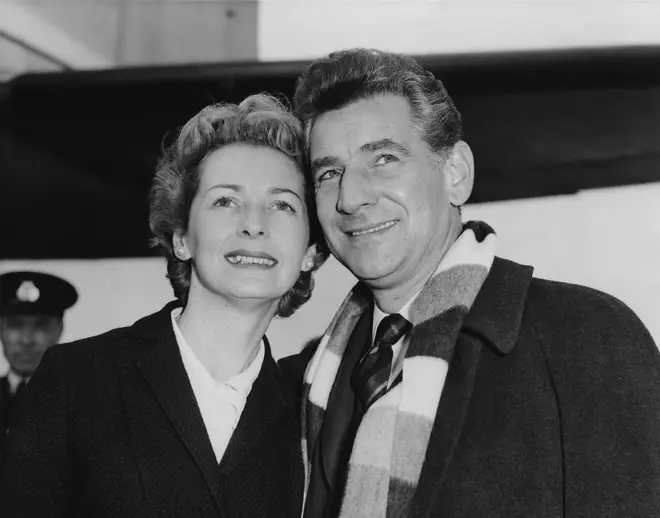
Montealegre moved to New York under the auspices of pursuing classical music. She did have piano lessons with the famous Chilean pianist Claudio Arrau, but also enrolled in the Drama Workshop of the New School for Social Research, and studied acting with Austrian-American actor Herbert Berghof.
She made her Broadway debut in 1946, appearing in Ben Hecht and Charles MacArthur’s Swan Song.
Alongside acting, Montealegre was a prolific social activist. In 1963 she became the first chair of the Women’s Division of the New York Civil Liberties Union and she was also a bold anti-war protestor, including in the grassroots campaign Another Mother for Peace, which she co-founded.
She worked a stint at Amnesty International, including for behind-the-scenes efforts in her native Chile during its political turmoil in the 1970s.
She famously hosted a Black Panther fundraising party in 1970, going against the tide of the political mainstream of the time. And in 1972 she was among 100 people who were arrested at an anti-war demonstration in Washington DC.
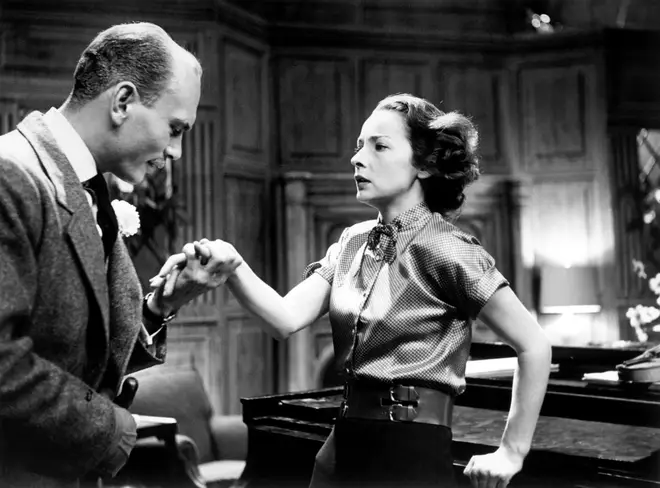
Which television shows and theatre did Felicia Montealegre act in?
Known for her work on TV shows released under The Chevrolet Tele-Theatre, Goodyear Playhouse and Studio One banners, Felicia Montealegre acted in programmes that include Mary Violet Heberden’s The Oath of Hippocrates (1949) and four episodes of the Suspense series (1949–1954).
She also starred in Henrik Ibsen’s A Doll’s House (1950) and Somerset Maugham’s Of Human Bondage (1949), in which she starred opposite Charlton Heston.
Montealegre made her Broadway debut at The Booth Theatre on 20 July 1946, appearing in Swan Song. In 1950, she was an understudy for Leora Dana in another Broadway show, The Happy Time, which starred Eva Gabor and Richard Hart.
Montealegre revisited Broadway throughout her career, including in 1976 when she acted in Poor Murderer, directed by her former teacher Herbert Berghof. She also had a reputation for Shakespearean roles, appearing in productions of The Merchant of Venice and Henry V.
Montealegre appeared on opera and concert stages too, performing dramatic roles for classical music works. She narrated Lukas Foss’ Parable of Death, based on the mystical poem by Rilke, in 1957, and performed the title role of Joan in Arthur Honegger’s Joan of Arc at the Stake more than once.
She made her Metropolitan Opera debut in 1973, playing Andromache in Berlioz’s Les Troyens.
How did Felicia Montealegre meet Leonard Bernstein?
Felicia Montealegre met Leonard Bernstein at a party in New York, in 1946. The host of the party was Chilean pianist Claudio Arrau, who Montealegre took piano lessons with when she moved to New York, and Bernstein and Montealegre were engaged by the end of the year they first met.
They broke the engagement off not long after this, however, and four years passed before the two met again. That reunion cemented their relationship, and they were married in September 1951.
Montealegre had had a relationship with actor Richard Hart in the four years between her and Bernstein’s earlier engagement and their marriage. Her relationship with Hart ended abruptly when the actor tragically died at just 35, suffering a coronary occlusion. He died in Montealegre’s arms.
Read more: Who was Leonard Bernstein? Exploring the man behind ‘Maestro’

Jamie Bernstein sings 'Somewhere' and explains the music in West Side Story
Being Leonard Bernstein’s wife
Montealegre and Bernstein went from quite literally moving in the same circles, to which Arrau’s party and Montealegre’s background in music and orchestral performances each attest, to being in a supportive, loving marriage. On the surface, the Montealegre-Bernstein pairing is a neat narrative.
Behind closed doors, however, it wasn’t quite as simple. As well as breaking off their first engagement, Montealegre and Bernstein announced a trial separation in 1976, with “hope of reconciliation”.
There was love and respect between Montealegre and Bernstein, as is well documented in letters and anecdotes from their lives, and depicted in Bradley Cooper’s film Maestro, but that doesn’t mean it wasn’t turbulent too.
Montealegre was far from in the dark about Bernstein’s sexuality, for a start.
“You are a homosexual and may never change – you don’t admit to the possibility of a double life, but if your peace of mind, your health, your whole nervous system depends on a certain sexual pattern what can you do?,” she once wrote in a letter to Berstein who was according to West Side Story collaborator Arthur Laurents, “a gay man who got married [and] wasn’t conflicted about his sexual orientation at all. He was just gay.”
They did stay married, and raised a family of three children together, something that corroborates mutual goals.
In and beyond her life with Bernstein, Montealegre met towering figures in all the arts she pursued in her life, including pianist Glenn Gould, soprano Maria Callas, actor Lauren Bacall, photographer Richard Avedon, and influential figures like Jackie Kennedy and author Boris Pasternak.
She loved flamboyant flower arrangements, something she once called her “single greatest extravagance,” and also took up painting, which she studied with the celebrated artist Jane Wilson.
Read more: Angelina Jolie to play opera star Maria Callas in new biopic ‘Maria’
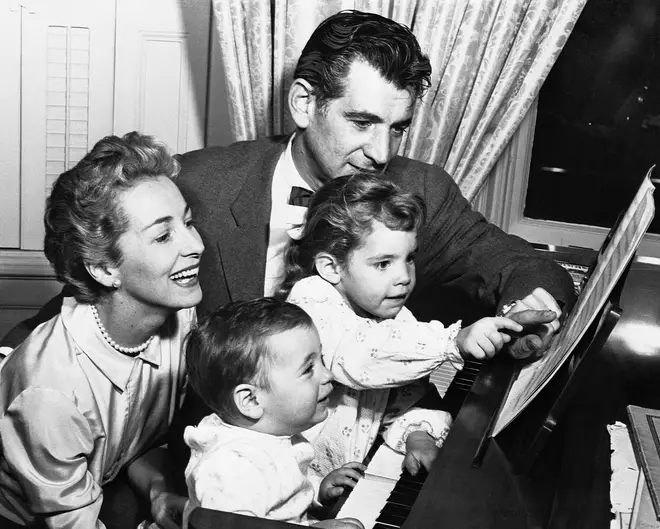
Who plays Felicia Montealegre in Bradley Cooper’s film Maestro?
Carey Mulligan plays Felicia Montealegre in the upcoming Netflix film about Montealegre and Bernstein’s life, Maestro. She stars opposite Bradley Cooper who plays Bernstein, as well as directing the film.
In an interview with Classic FM, Montealegre’s daughter Jamie Bernstein praised Cooper’s film, and the casting of Mulligan:
“It’s a portrait of our parents’ marriage. It’s about something very specific and very personal for us. We’re really struck by the fact that this was the aspect of the story that Bradley decided to focus on, and we’re very excited about Carey Mulligan as our mother Felicia; I promise you she is going to send it to the moon in a rocket.”
Read more: Maestro movie: plot, cast, release date and how to watch Bradley Cooper’s Bernstein biopic
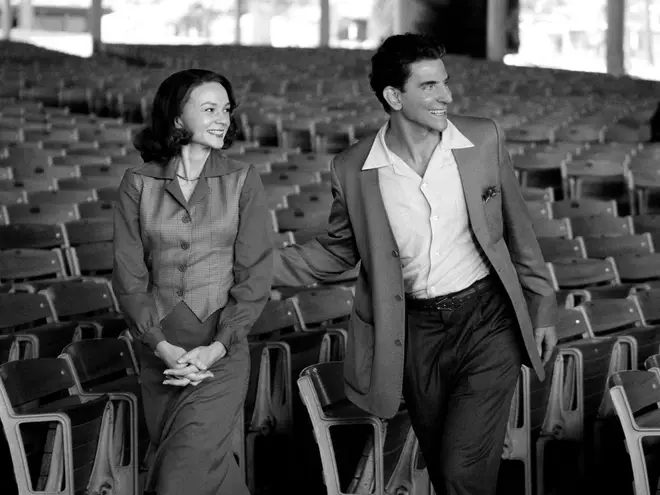
Is Maestro the movie based on a true story?
Yes, Bradley Cooper’s Leonard Bernstein film Maestro is based on the true story of the conductor and composer’s marriage to Felicia Montealegre.
The film tells the story of Bernstein’s life – with a specific focus on his marriage, relationships and sexuality – from when he met Montealegre at Claude Arrau’s party in 1946, up until Montealegre’s death following a struggle with lung cancer in 1978.
Cooper worked closely with Bernstein’s three children, Jamie, Nina and Alexander, to bring Bernstein and Montealegre life respectfully on the big screen.
So although there’ll no doubt be some of the expected “artistic licence” in the telling of this story, we’re looking forward to seeing something based on the true story of Montealegre and Bernstein’s relationship, supported by the people who lived it.
Bernstein’s own music will be included in the film, with Cooper having acquired the rights from the Bernstein estate to feature it back in 2020.
The trailer for Maestro has already been released, and it’s striking to see how similar Cooper is when compared visually to the conductor. Cooper’s posture and gestures – and even the way he hunches over folded arms and holds his cigarette out – are all pitch perfect.
What happened to Felicia Montealegre?
Montealegre passed away in 1978 at the age of 56 with lung cancer. She died at her and Bernstein’s family home in East Hampton, and was survived by their three children, Jamie, Nina and Alexander.
Montealegre was buried at New York’s Green-Wood Cemetery in Brooklyn where, 12 years later, Bernstein would be buried next to her.




